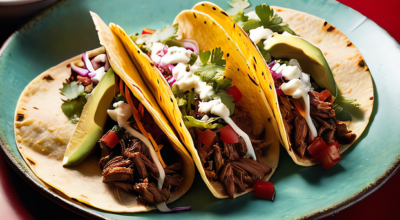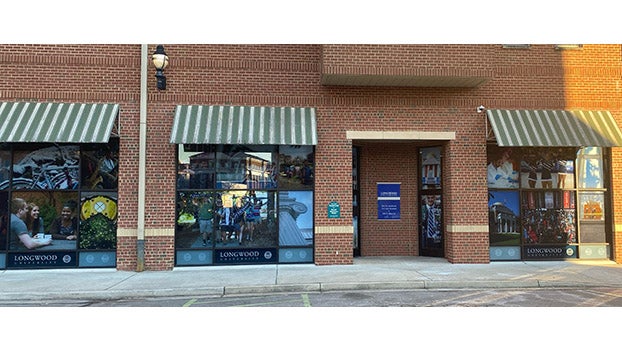Educator Has Long Journey
Published 4:43 pm Tuesday, November 23, 2010
PRINCE EDWARD – Behind a working desk in a small office in the Prince Edward County school board office proudly hangs masters and doctorate degrees from Virginia Tech.
“…I'm the luckiest man in the world,” Dr. Roy Echeverria proclaims in reflection and an infectious joy in his voice.
Dr. Echeverria, the school system's director of accountability and research, certainly has a reason to feel that way considering the two degrees and even beyond that. His life's story is woven with opportunity and the merits of hard work.
He has literally come a long way.
The third of eight children, Dr. Echeverria was born in a remote region of Honduras (La Mosquita).
“It is historically been abandoned in every sense of the word,” he reflected recently. “I mean, economically-there's no roads that you can drive from the rest of Honduras to that area. Either you go by plane or by boat…”
He pauses, then offers that it's like the jungle.
His mother was a housewife, his father a former congressman who once studied fisheries management in the U. S. in the 1950s, worked for the ministry of natural resources in Honduras, farmed and was a lobster fisherman.
Honduras has a ways to go as far as educational opportunities. Dr. Echeverria, in an October report to the school board, cited that 66 percent of the population lives in poverty and 57 percent in extreme poverty.
The school year spans 200 days, but averages 110 days, basically because of strikes, Dr. Echeverria said. Sixty percent of elementary teachers teach multiple grades, only 38 percent of children ages three through six go to preschool; 170,000 children do not go to elementary school; 35 percent of children between 15-18 receive a seventh-12th-grade education. Only nine percent of the population go to college.
The average schooling an individual receives is five years.
The stats highlight how rare, and how much an anomaly Dr. Echeverria is.
Education was especially important at home. As an eighth grader, Dr. Echeverria was sent to the capital city, Tegucigalpa, to continue his studies beyond the local school. His parents paid room and board for he and a brother and sister to live with another family.
“…It was tough, you know. It is not easy to separate a child at that age…from their family,” he said.
The three children stayed the whole school year-it was just too far, too expensive to go home. As they grew a little older, the three joined with cousins and rented a house that was managed by an older cousin.
Essentially living without direct parental oversight.
“You just can't imagine…sending a group of kids at (seventh), eighth, ninth, tenth, whatever grades to live in Washington D.C. by themselves…with no supervision as to whether we're doing homework, whether you (are) attending school. Nothing. You had to become an adult very quickly,” Dr. Echeverria said.
He also details, “Sometimes I didn't (want to) go to school. Sometimes I didn't (want to) study…everything that as a kid…is normal, you know, but I could hear my dad or my motivation was what would my parents think if I had a failing grade, if I misbehaved, if I didn't go to school, and if I failed. Period,” he said. “You know, so that was the motivation behind my drive…”
When Dr. Echeverria graduated, he had several options and chose (with a scholarship) the prestigious Pan American Agricultural School, which draws students from throughout Latin America.
After finishing that program, he worked as an entomology instructor, then returned to the region he grew up. There, he worked with refugees from Nicaragua and with a development agency, MOPAWI to assist local residents.
At the time, he was the only Miskitu with a professional degree in agriculture, giving him an advantage because he could teach in the language. (Although Spanish is the national language of Honduras, Miskitu is the spoken language in his region. Dr. Echeverria speaks both.)
But another door was about to open-he was one of the first three selected to participate in a scholarship program to study in the U. S. and return to their home countries (through USAID).
The 26-year-old came to the U. S. in October of 1986 and was taken directly to Washington D.C.
“…I cannot describe what it is to come to a country that (you've) never been that you don't know anybody. Zero. You don't have friends. You don't have anything…and you're put in the middle of Washington,” Dr. Echeverria laughs now.”…It is tough.”
From Washington, he was sent to Southern Illinois University.
Dr. Echeverria wanted to go to Virginia Tech, but to have a choice of schools he would have to reach a specific score on an English proficiency test. (He exceeded it.)
He finished his bachelor's degree-making the Dean's list every semester-and asked that the scholarship be extended for the Master's program, which was approved.
The educational journey, however, wasn't quite over.
Dr. Echeverria remembers telling his dad he would be returning to the U. S. to work on his doctorate.
“And he had been encouraging us for education and study and all that. And I still remember since it was yesterday. He said, 'Son, don't you think that (you're) overdoing it?'” he said.
Dr. Echeverria still laughs at the thought.
Before he could finish his doctorate, however, he had an opportunity to serve as the Honduran ambassador to Jamaica (from 1994-98) where he met prime ministers to presidents and the secretary general of the United Nations (Boutros, Boutros Galli).
He returned to Honduras, but Hurricane Mitch devastated the country, so he opted to return to the U. S., took a statistics class for fun in Florida and realized he could be teaching it. So he contacted Virginia Tech again, tested to demonstrate that he did not need refresher courses, and started working again on his PhD.
Dr. Echeverria drove a bus in Blacksburg, worked as a waiter and worked night shift in one of Virginia Tech's hotels-doing what he had to do to pay for his education.
“…I want kids to know what it takes…to achieve your dreams,” says the father of three.
He also went on to work at Brown University for about three years as a research and evaluation specialist. But there's a place where research meets the classroom.
It is the understanding of whatever you study that makes the difference, Dr. Echeverria says.
While he was working with public schools, but he felt he was missing first hand experience, which brought him to Farmville.
It's been a learning experience to be here, he says.
“…The challenges are just great, you know, but remember, the more difficult the more interesting it is to me,” he said.
His PhD program was on educational research and evaluation and he has a specialty in statistics.
Dr. Echeverria has three children who have grown up in the U. S., the youngest of which is finishing her senior year and has plans for medical school.
He became a permanent resident some ten years ago and a U. S. citizen a couple of years ago.
“I remember going into…a McDonalds and my heart was racing because I was afraid that I was going to make a mistake when I order something, a hamburger, in English…From that point…to where I am right now, it's a long trip,” he said.
Consider that only nine percent of children in Honduras go to college and, he cites, he is the first PhD of the Miskitu people as far as he knows in Honduras.
Remarkable, indeed.
Dr. Echeverria returns most every year to Honduras to see his mother. But this past August, there was a bit more involved.
USAID contacted him about returning to Honduras to help educators develop their standards of learning (an equivalent to Virginia's SOLs) and to provide training in how to put them together and how to create indicators to measure learning.
Dr. Echeverria was one of a team of ten that worked with a group of some 75 teachers (unpaid) who worked with the group.
“…They were so accepting…so thankful…that we were there,” he said.
The group included educators from the U. S. as well as others, including a former minister of education from Puerto Rico.
While the effort doesn't complete the work, the aim was to help the Honduran educators so they could continue the process themselves. Along the way, Dr. Echeverria received something, too.
“Sometimes when you are immersed in an environment……when you are dealing with the minutia, you kind of lose sight of the bigger picture…” he says when asked if he brought something back from the experience that will help him here.
The experience, he feels, helped him kind of zoom out and see things from a different perspective.
The world is flat-it has shrunk, he feels. Honduras, and he believes, many countries in the world, are doing the same thing.
“Their expectations are at the par with the United States,” Dr. Echeverria said. “So…we (are) gonna be competing…with these kids that are being educated all over the world.”
He also added, “So we need to button up and get to work.”
Anyone looking for some inspiration perhaps needs to look no further than those two degrees hanging on the wall of Dr. Echeverria's office.






